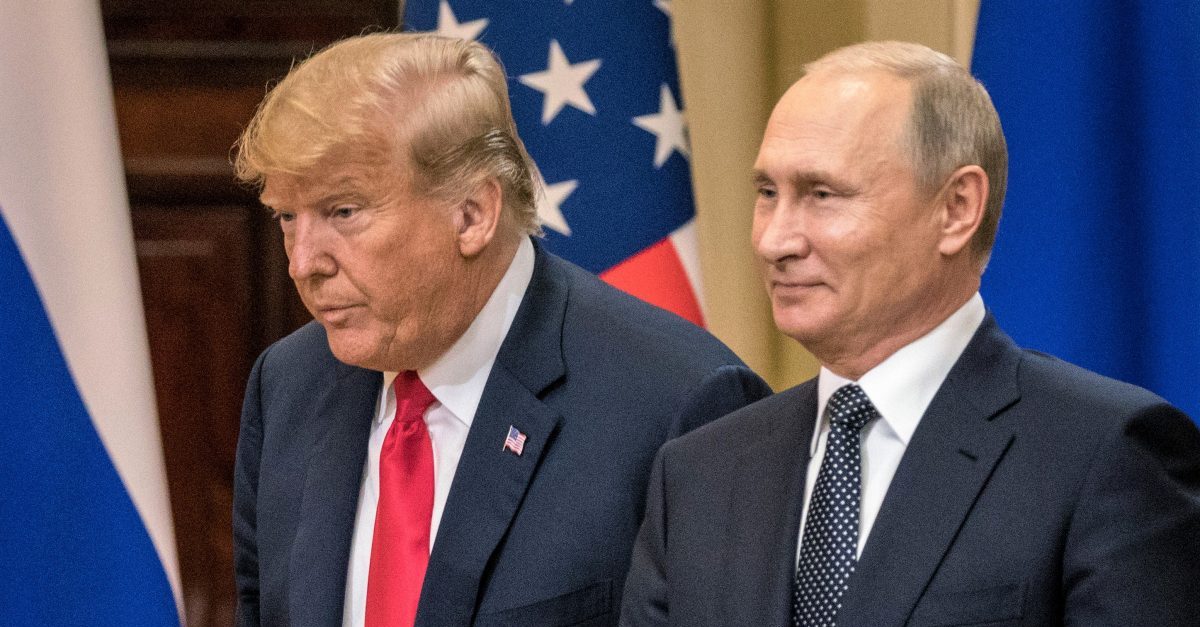
Not long after the Russia-Taliban bounty story first started unfolding in public view, a bombshell new report from Just Security claims that President Donald Trump directed the Central Intelligence Agency (CIA) to provide the Russian government with U.S. intelligence information concerning terrorist groups in the Middle East—whom Vladimir Putin was likely supplying with weapons—without getting anything in return.
According to the report, which was sourced from several former Trump administration intelligence officials, the administration’s failure to address Russia’s furnishing of weapons to the Taliban, coupled with Trump’s “embrace” of Putin, may have set the stage for Kremlin officials to green-light the audacious bounty operation.
The Pentagon was confident in early 2018 that the Russians were placing U.S. troops in increased danger by arming Taliban militants. In response, Trump didn’t just refuse to confront Putin, he “undercut” U.S. officials who raised public concerns and “overtly and repeatedly” embraced Putin.
Then, “behind the scenes,” former intel officials said the president “directed the CIA to share intelligence information on counterterrorism with the Kremlin despite no discernible reward.”
The intel-sharing effort was reportedly undertaken after the administration had originally tried to push the Defense Department to engage in cooperation with Russia (which then-Secretary of State John Kerry also attempted in 2016) but couldn’t because of the National Defense Authorization Act (NDAA). A provision of the NDAA prohibits “bilateral military-to-military cooperation” with Russia without a waiver from the secretary of defense and congressional notification. However, the prohibition does not apply for cooperation among intelligence agencies such as the CIA.
“There was a consistent push for [counter-terrorism] cooperation with Moscow, coming from the White House, despite near universal belief within the IC that this effort would be one sided and end up being a waste of time and energy,” Marc Polymeropoulos, a former CIA Senior Intelligence Service official, told Just Security. “As we anticipated, however, it was a Sisyphean task. We ended up only giving information, and not receiving anything worthwhile. I cannot think of anything of value that the Russians provided us, that saved any US lives, or was worth even the time it took to pick up the phone to set up the meetings.”
National security attorney Bradley P. Moss said that while the administration’s actions seemed lawful, they also raised obvious questions about motivations.
“Time and time again, President Trump has pushed up against the boundaries of his discretion under the law, and this story (if true) is no exception,” Moss told Law&Crime. “Although, to be fair, it appears the president has the authority to do this and there is even precedent for an interest by past administrations to engage in something similar, it raises eyebrows if this was being pursued by the White House notwithstanding the credible reports of Russian bounties being paid to those who attack American soldiers overseas.”
“If nothing else, this whole issue cries out for greater legislative oversight to get a better understanding of how, why and in what manner this action was pursued,” Moss added.
[Photo by Chris McGrath/Getty Images.]